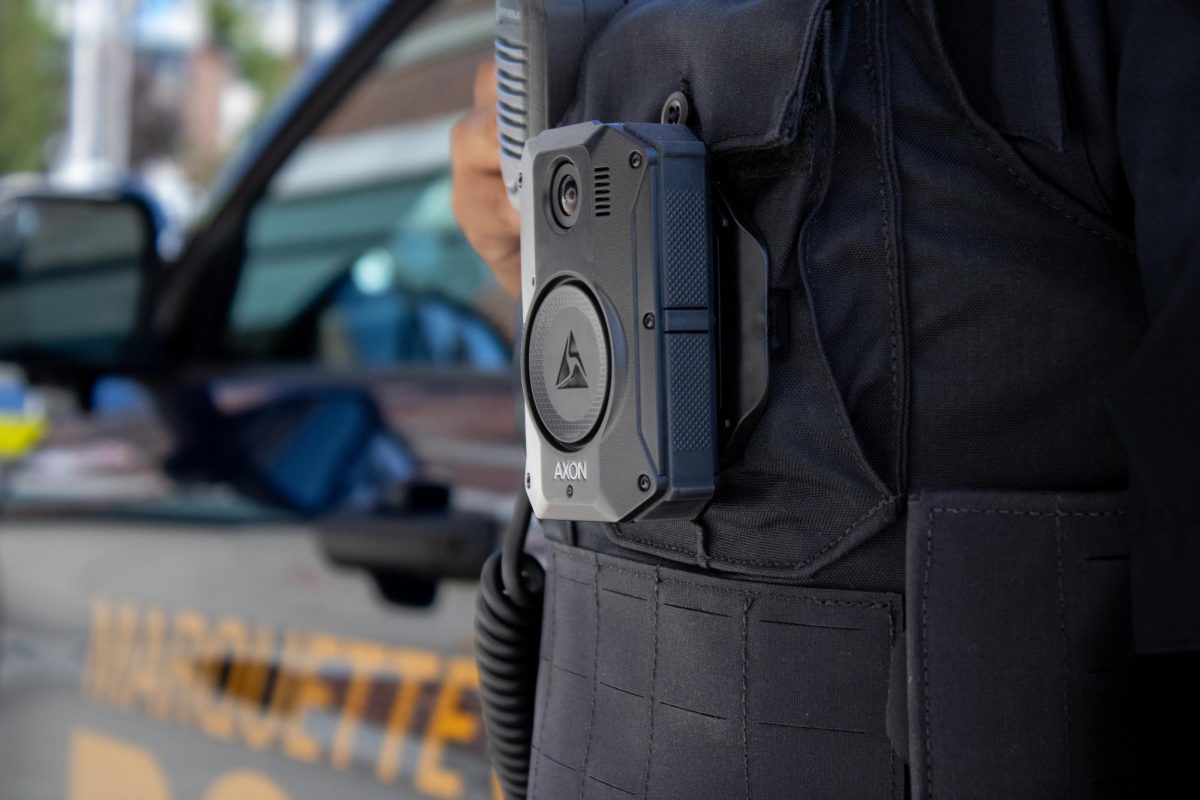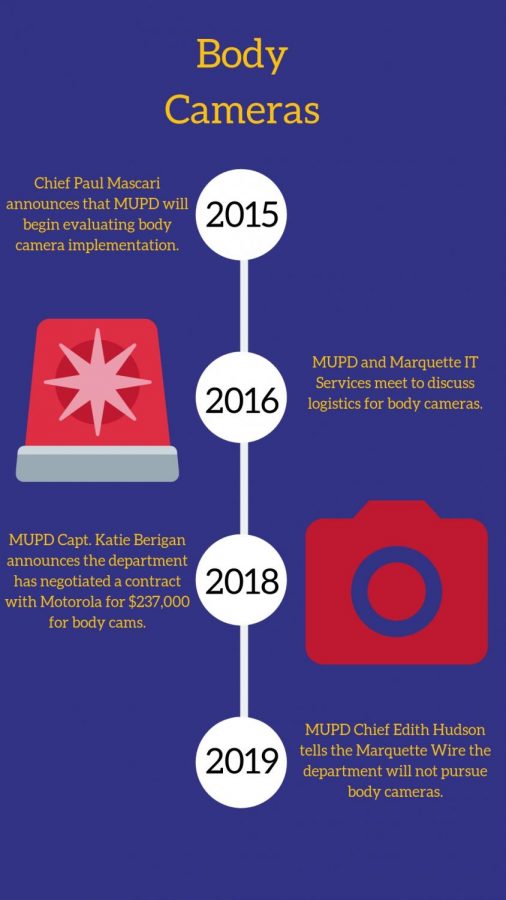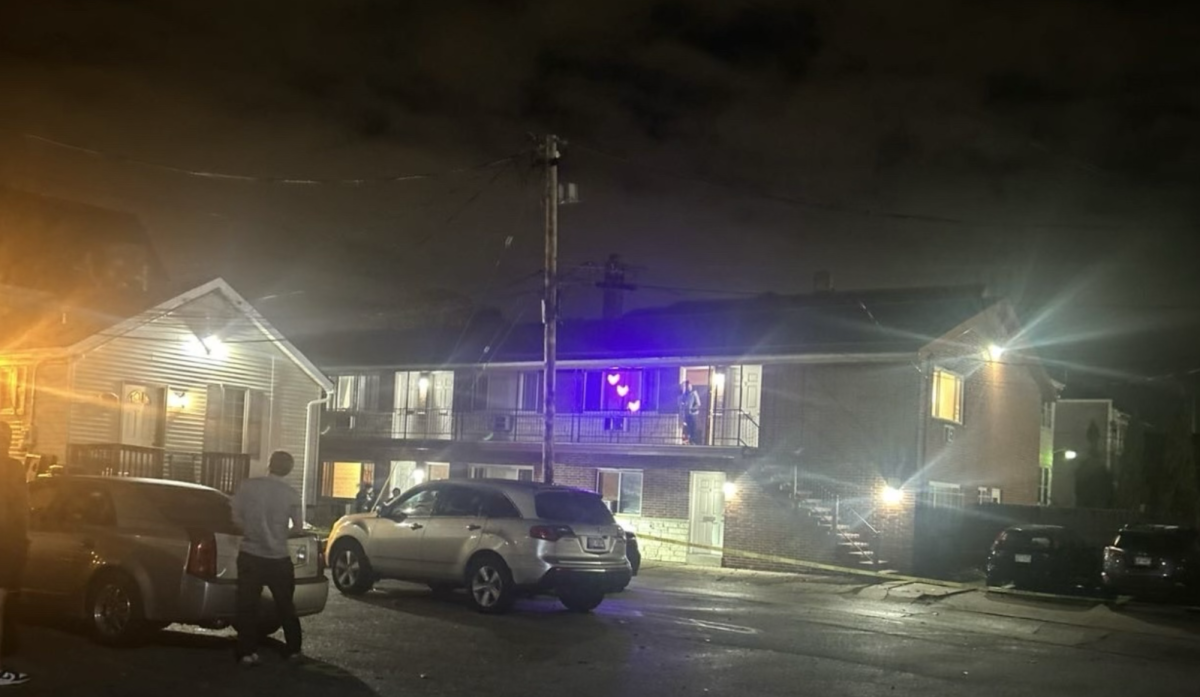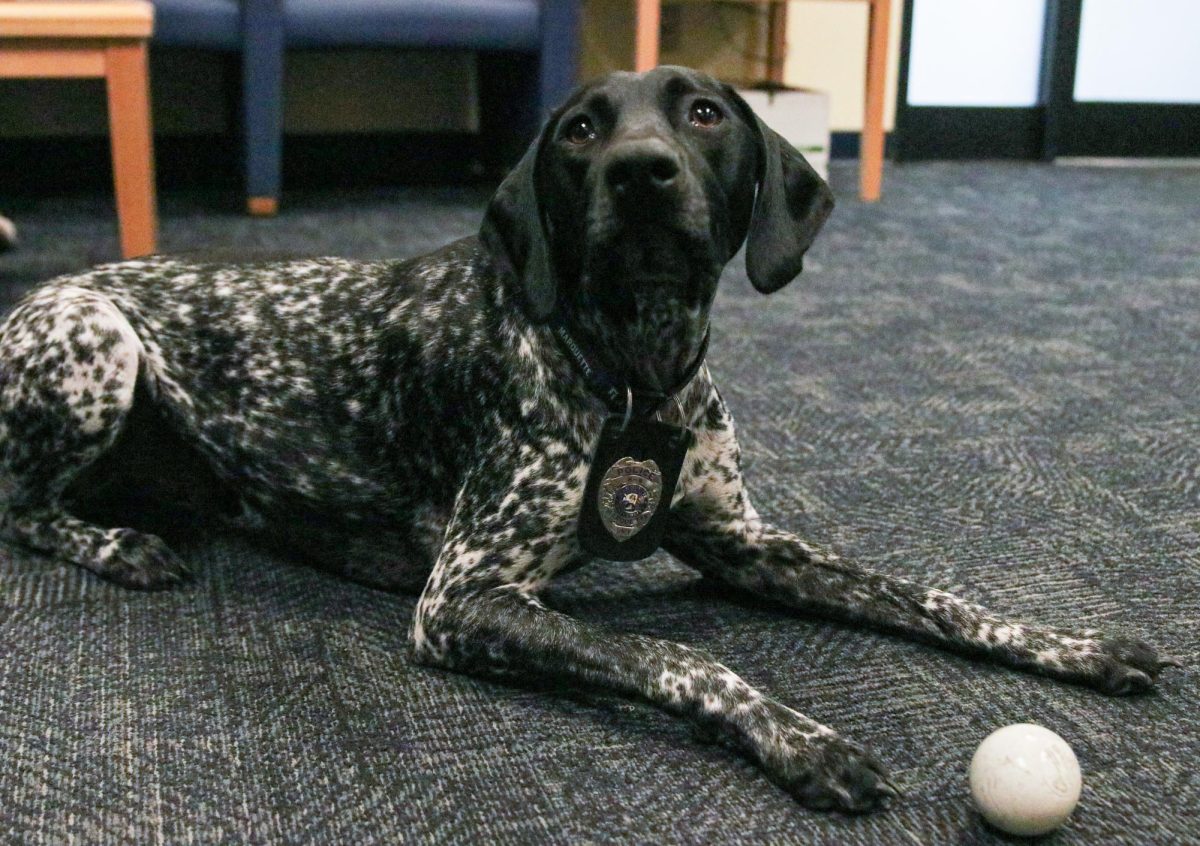Marquette University Police Department officers will begin wearing body cameras after a summer pilot program.
Assistant Chief Jeff Kranz said at this point body cameras are an industry-wide standard, so it made sense for MUPD to get them.
“It’s best practice to have (body cameras) and it’s what the community wants from us. They want transparency and getting body cameras improves the transparency of the department, so I think it’s a win on both sides,” Kranz said.
MUPD officers have to manually activate the camera any time they take part in a police interaction. Kranz said that means anything that could result in a police report, a ticket or an arrest.
“You watch the footage, a lot of times, that’s going to be what’s going to prove the facts of the case. It’s this neutral eye that’s going to be watching what the officers are doing, and we’re proud of their work so we’re happy to get that information out to the public,” Kranz said.
The camera is about the size of a smartphone, but thicker. Once the camera is activated it has the ability to pick up 30 seconds of video, with no sound, prior to when the officer pushed the button to activate.
“I would say the one challenge that we’re seeing is getting the officers that muscle memory that they’re tapping this button every time that we’re interacting with somebody,” Kranz said.
During the pilot program, Kranz said MUPD had to establish a system on how to classify and download the body camera footage.
Though MUPD has used dashboard cameras since its formation in 2015, the body cameras aren’t operated through the same system.
“Axon is our body camera system and it’s a different older system in our squads. When that becomes outdated, we’re going to switch it all over to that same system,” Kranz said.
The pilot program, which began June 1, issued body cameras to 8-10 MUPD officers and two sergeants. Throughout the pilot program MUPD said there was at least one camera active at all times.
MUPD has not yet established a policy for when or how body camera footage will be released.
“I think it’ll be pretty similar to what you see in the industry. We haven’t gotten to that point yet, we’re going to be kind of feeling our way through that, but I think it’ll be pretty similar across the board the way videos get released,” Kranz said.
According to a 2021 survey by the Wisconsin Department of Justice most agencies hold body camera and dashboard footage for at least 90 days.
There are currently no local or state laws that set a timeframe for body camera footage release.
MUPD received partial funding of the project through the Body-Worn Cameras Grant Program launched by the Wisconsin Department of Justice in 2022. UW-Milwaukee and UW-Madison’s police department also utilize body cameras.
This story was written by Megan Woolard. She can be reached at megan.woolard@marquette.edu or on Twitter/X @MeganWoolard4














